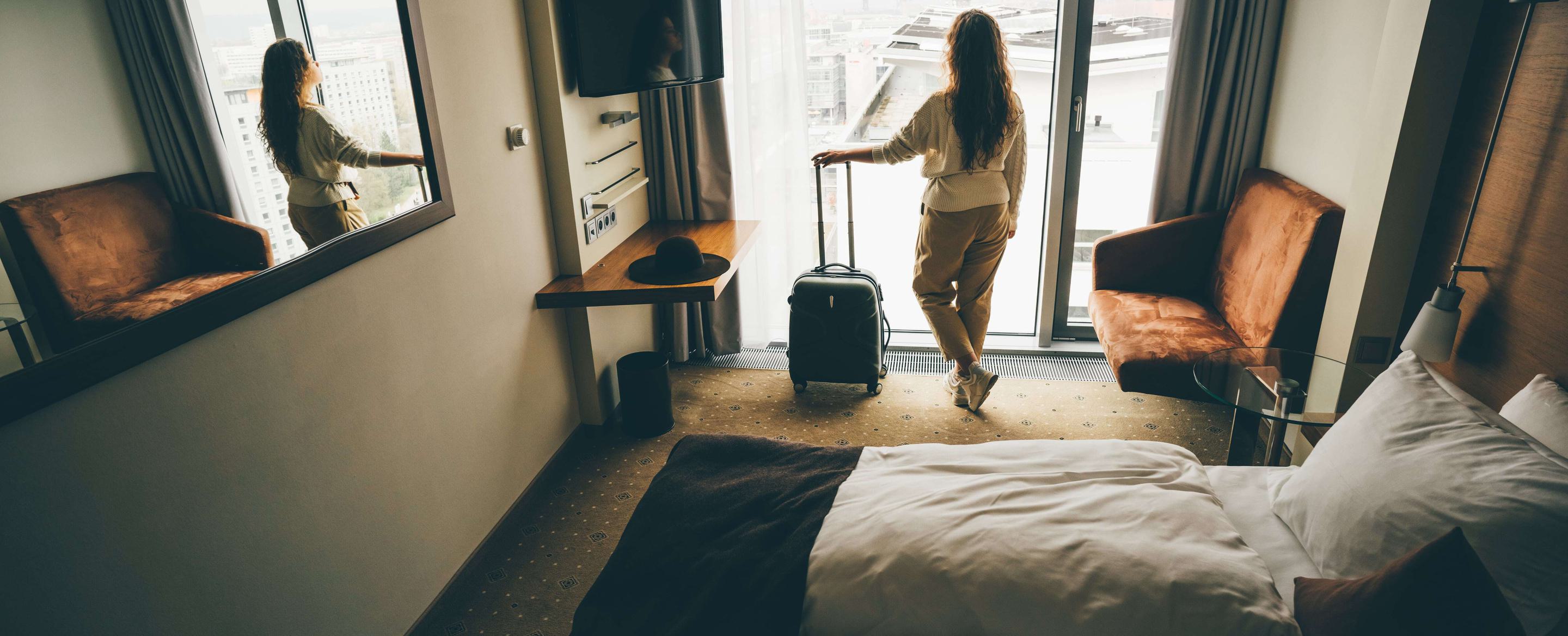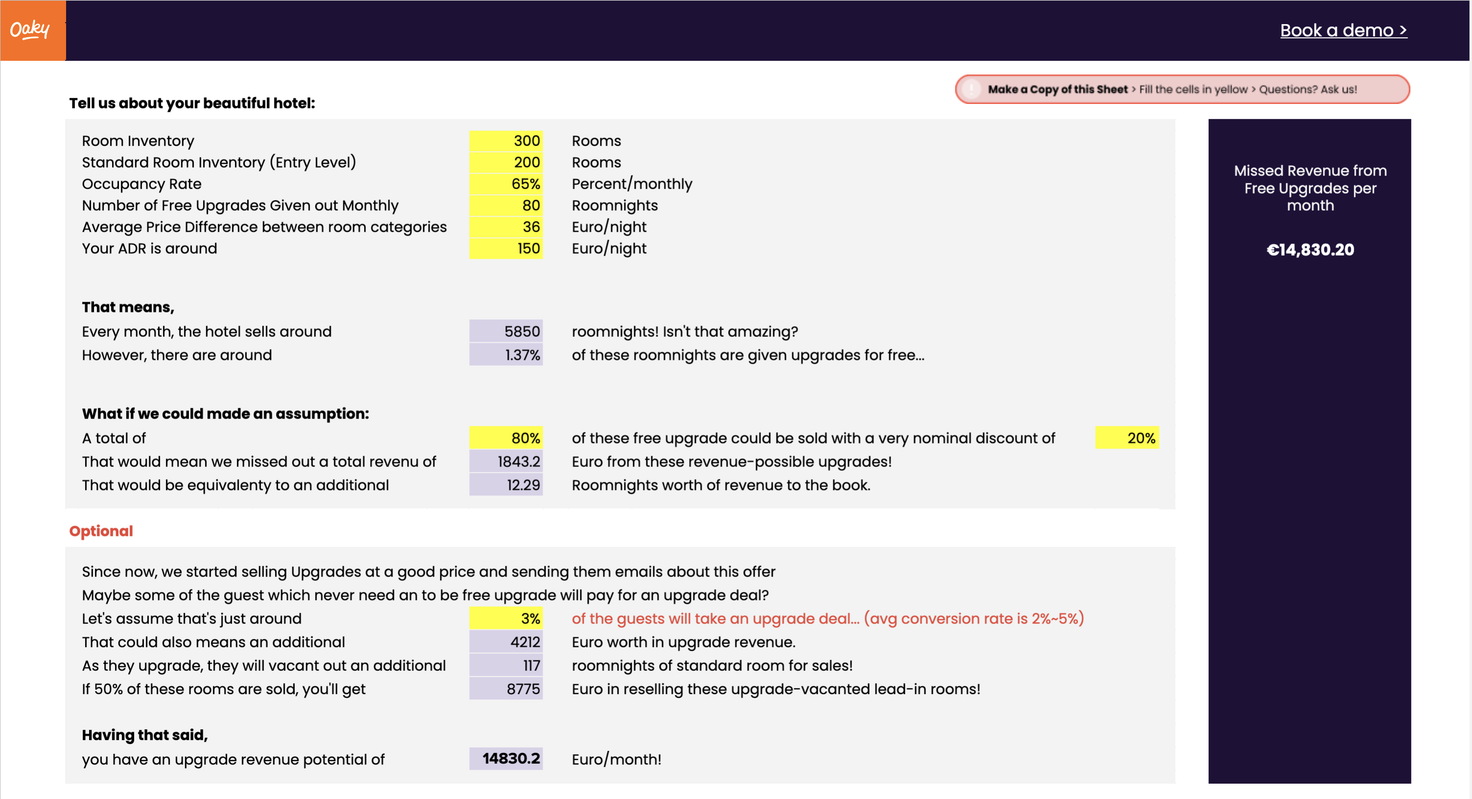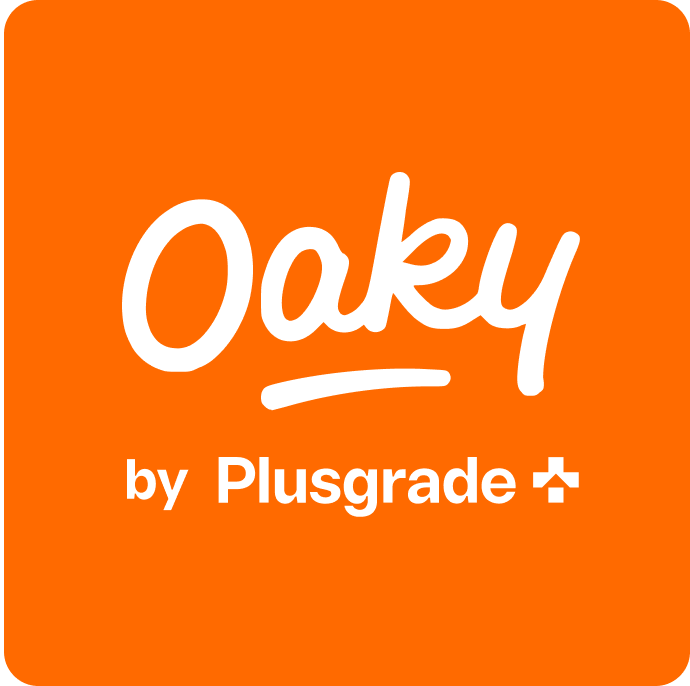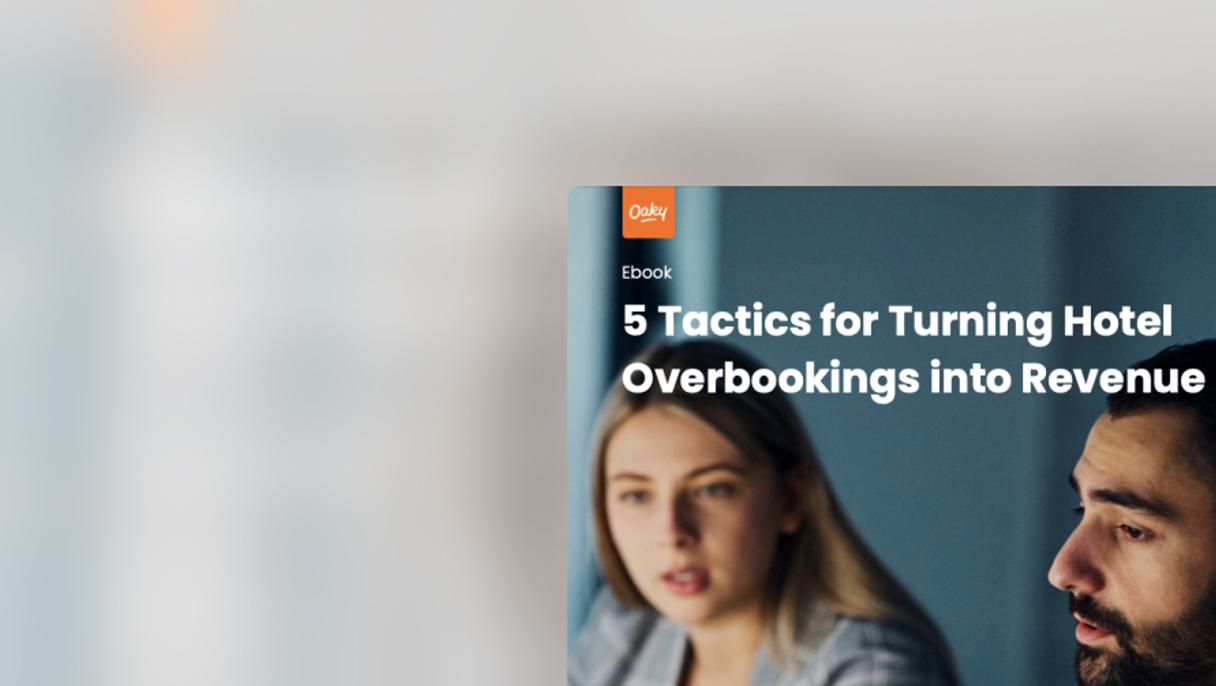How to make a hotel overbooking strategy effective
Oaky
•

It might sound like a bad business idea, but a hotel overbooking strategy is a common practice in the hospitality industry, especially for larger hotels. When done right, it’s a legitimate way to put your entire hotel inventory to good use and ensure full occupancy.
To learn how you can implement a successful overbooking strategy and grow your incremental revenue, here’s a quick overview of what hotel overbooking entails, how to implement it successfully, and what to do if things go off the rails.
What is a hotel overbooking strategy?
The hotel overbooking strategy is a revenue management technique that hotels use to maximise occupancy and revenue. The reason behind this strategy is that hotels usually expect guest cancellations. This way, when a guest cancels a reservation, the hotel has already secured another guest who can fill that booking.
However, the downsides of this strategy are potential double-bookings and lost revenue as a result of giving away free room upgrades.
Why do hotels use an overbooking strategy?
Why would hotels possibly create more problems for themselves? It might sound counterintuitive, but overbooking can be advantageous when done right. Here’s how:
1. Ensures full occupancy
Hotels need to boast exceptional occupancy levels to generate revenue. Overbooking ensures maximum occupancy by having backup guests ready to fill rooms if others cancel.
2. Mitigates cancellations and no-shows
Cancellations happen all the time. No-shows too. Even though the global cancellation rate went down to 20% compared to 25% in 2021, cancellations remain an inevitable part of the hotel industry.
When a guest cancels shortly before the check-in date, it leaves a hotel in a predicament as there’s a real possibility that they won’t have enough time to get a new guest to fill that vacant room. Though, by implementing overbooking strategically, you’ll have guests for those last-minute cancellations or complete no-shows.
3. Prevents lost revenue opportunities
If you choose not to use overbooking, your hotel can lose out in more ways than one. Not only do you lose out on the actual booking that was cancelled, but you also rob your hotel of a golden opportunity that could be used to win a new customer.
On the other hand, when hotel overbooking is allowed, your hotel can reach its full financial potential. In addition to generating room revenue, you’ll also have a guest to whom you can advertise your upselling deals.
How do you create and execute an effective overbooking strategy?
To prevent all the potential negative impacts of using an overbooking strategy, it’s critical that hotels build and execute their overbooking strategies with due diligence. Here are a few steps to ensure that an overbooking strategy works to your advantage:
1. Use data to forecast potential cancellations and no-shows
Your own data about reservations and guest behaviour will be a valuable resource. These numbers will help you to work out how many rooms can be overbooked safely. In addition to using it to predict the number of no-shows and cancellations, you can also use it to calculate how guests should be compensated so that they’re happy without the hotel having to suffer significant financial losses.

2. Use automation to collect data
As the success of your hotel booking strategy will hinge on the accuracy of your data, it’s a good idea to use a hotel channel manager, booking engine, and analytical tools. For example, a channel manager helps to sync bookings coming from different channels, which also prevents double-bookings and enables hoteliers to foresee trends in booking behaviours.
These automation tools can help to track historical data, identify guest behaviour patterns, and forecast cancellations (as well as pinpoint groups that tend to cancel stays). On top of that, these types of tools take into account external factors like changes in the weather, flight cancellations, and destination popularity in the Google search to predict possible changes in travellers’ behaviour.
3. Introduce pre-arrival upselling
Pre-arrival upselling can help hoteliers shape a smarter and more profitable overbooking strategy. During this stage of the guest journey, guests are likely to be more open to personalising their stay. This means that when suggested during the pre-arrival stage, there’s a greater chance that you’ll sell room upgrades (in other words offering a room of a higher category at a small discount).
There are also tools on the market that will help you seamlessly integrate upselling into your hotel operations. For example, with Oaky, upselling software specifically designed for hotels, you can send out engaging pre-arrival offerings to drive room upgrade bookings and prevent lost revenue from giving away free upgrades.
Try Oaky in action
4. Place a cap on overbookings
Adding to the first point, make sure to limit your overbookings on all the booking channels your hotel is listed on. There’s a reason why you gathered data and invested in third-party paid tools — remember to use them. Otherwise, you might end up with numerous guests without a room where they can stay.
5. Collaborate with local hotels on overbookings
When you’re planning to implement hotel overbooking, you’ll need to partner with your competitors. As part of your backup plan, set up partnerships with neighbouring hotels in your area to handle overbookings. These hotels should be of similar value and quality so that you can use them as alternative accommodations and send your guests to stay there if a double-booking occurs.
How to handle hotel overbookings?
Even with a proper hotel management system in place, it’s possible for overbookings to occur. If this happens, follow these practical tips for handling overbooked guests.
Maintain a list of guests subject to overbooking
Keep track of guests that you might need to move to your partner hotel if they arrive. You might want to notify them in advance that a room at your hotel is not guaranteed as long as they don’t guarantee their arrival.
Use front desk upsell automation
Together with pre-arrival upselling, using front desk upselling can work wonders for your overbooking strategy and hotel revenue management. By using upselling at various stages, you can, in some instances, even triple your hotel revenue when done right.
For example, with Oaky’s Front Desk Upsell automation, front desk agents get real-time room upgrade (+ other deals) prompts to upsell to guests at check-in. It lets you upsell throughout the entire guest journey in an easy and automated way.
Discover Front Desk Upsell automation
Think strategically about which guests to move
When doing damage control, using a first come, first served approach won’t yield the best outcome. The truth is that no two guests are the same or offer the same value to your hotel. Instead, assess each guest individually by asking yourself the following two questions:
Is this a loyal guest?
How much revenue do they bring?
It can possibly work in your favour to move your most loyal guests. As they’re returning guests, they know that you usually deliver first-class service and can be more forgiving than first-time guests. For example, if they’re part of a loyalty program, you can reward them with points, in addition to moving them to a new hotel.
That being said, loyal guests often return to the same hotel because they like structure. If they’re creatures of habit, it might make more sense to move new guests instead.
Then, also consider how much money they’ve already spent. If they’ve used pre-arrival upselling or booked directly, rather see if you can move another guest.
Train your staff to handle overbookings
Interacting with an overbooked guest needs to be done tactfully. For this reason, make a point of including training specifically about this type of situation in the hospitality training that you offer.
Train staff on how to communicate professionally, suggest alternative accommodation (and organise transport, if needed), and offer relevant compensation. To ensure that staff know what to do and that each situation gets handled consistently, it’s a good idea also to have a guest recovery plan in writing.
What are the disadvantages of a hotel overbooking strategy?
Though an overbooking strategy is a great technique to amplify your bookings and revenue when it’s not planned and implemented with the necessary care, it can lead to undesirable consequences:
1. Giving away free upgrades (= lost revenue)
Yes, you can look at free upgrades as an investment in your guests’ experience while staying at your hotel. If they scored a free upgrade to a better room because you overbooked their standard room, they’re more likely to return and leave good reviews. The positive financial impact of each free upgrade is impossible to track, though.
On the other hand, you can measure how much each free upgrade costs you in missed revenue. In a single case, the lost category supplement may not look like much. But it adds up to a handsome sum faster than you think. Our simple calculation shows that with free upgrades, a 300-room hotel might lose around 15K in a month.

You can also quickly check how much revenue you might be losing every month when handing out free upgrades by using this calculator.
2. Guest dissatisfaction
Not all guests are so lucky to be upgraded to a better room for free. It could work out that you need to arrange accommodation for them at an alternative hotel. If your guest had their heart set on staying at your hotel, they’ll be dissatisfied with the outcome.
To avoid this, you should have a good plan for when things go wrong. This plan should include finding a new place for your guests to stay and compensating them for any inconvenience they experienced.
3. Damaged online reputation
It’s easy for frustrated guests to share their recent negative guest experience with the rest of the world (meant in quite the literal sense of the world). While social media and online guest reviews can be terrific marketing tools for hotels, they can just as easily be used to damage your good name.
Overbooked guests might not make a scene in the lobby, but they have a long list of online platforms where they can leave multiple negative reviews. And, unlike an argument that’s seen by a few and forgotten soon, negative online reviews can be read over and over again for years.
Final thoughts
Hotel rooms make up a hotel’s main inventory. As such, you’ll want to do everything possible to work in a smart way, which includes using overbooking practices carefully. While it does involve some risk, it’s a cost-effective strategy that can help with revenue management in the long run. Plus, not only do empty rooms mean that a hotel business can’t generate revenue via bookings, but it also deprives it of the chance to generate extra revenue via upselling.


